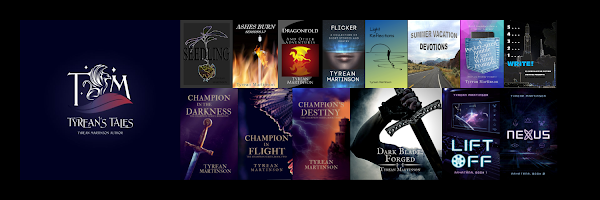5 Reasons to Write is an ongoing series highlighting writers who love to write. Topics can include writing with certain genres, writing with prompts, or writing with various types of technology (text, voice, and more).
Five Reasons to Write with Prompts
By Laurel Garver
Some writers feel that using writing prompts is like riding a bike with
training wheels—fine for beginners to get them moving, but too restraining for
the more experienced. The fact that creative writing teachers often include
them in courses can also give them an elementary flavor.
But prompts are useful beyond mere apprentice-work practice stories.
Writers at every level can benefit from bringing prompts into some part of
their process. Here are five reasons to write using prompts beyond “so I can
get an A in my undergrad fiction writing course”:
1. To warm up
No Olympic track star rolls out of bed and walks directly to the blocks,
nor does a dancer simply strap on her toe shoes and dance The Rite of Spring. The pros know you can't perform your best
unless you first warm up and stretch. And because the biggest obstacle to
writing is one’s resistance to simply sitting down and beginning, a
low-pressure warm up can be a helpful way to ease you in. Write to a prompt for
ten minutes before you turn to your larger project, and you may find that, like
the athlete, it enables you to go faster when you do "hit the track"
(work on your manuscript), and like the ballerina, it enables you to move with
greater ease and grace.
2. To overcome writer’s block
Writer’s block usually has one of two root causes: hitting a wall with
a project or being in a creatively dry period. Essentially, a wall or a desert.
Prompts are an excellent way to step away from the sense of frustration and
simply play with words. Rather than stubbornly clench your fist around a plot
problem or characterization glitch that has you stuck, take a creative vacation
by writing to a prompt. It will enable you to mentally relax and give your
intuition space to work. And rather than despair about having no ideas, pick up
a collection of prompts. These germs of ideas from other creative minds that
can often kick-start your creativity.
3. To experiment in a new genre
If you’ve always written one genre, prompts can provide excellent
starter ideas to experiment in another genre, to try it on for size and see if
it is a fit for you. Genre experiments can also help you avoid getting
stale—even if you return to your genre of choice. For example, writing a
romance short could help you develop skills with adding subtext to dialogue;
experimenting with horror could help you become more deft at tension building
and slow reveals. Spinning a prompt in an unexpected direction will open you
creatively, help you develop your problem-solving skills, and widen your
writing range.
4. To deepen parts of an
existing story
Many early drafts suffer from lack of development of either the
characters or the plot. Prompts can be helpful tools for doing this development
work. They can helping you delve deeper into who these fictional people are and
what they’d naturally do in certain situations. They can also provide new ideas
for conflicts and obstacles to incorporate into your story, expanding the kinds
of experiences your characters have—things you might not have come up with on
your own.
5. To overcome burnout
It’s not unusual while writing a novel to hit a stage that you hate
your story and have no motivation to continue working on it. Or perhaps you’ve
finished the manuscript and are growing weary of the revision process. Your
energy has been expended in one direction so long, you feel you can’t take
another step on the same path. When experiencing this kind of burnout, writing
to a prompt can be a way of having a little creative vacation elsewhere.
Writing about your own past—taking prompts in a memoir direction—can be
refreshing. So can imagining a character from your current project in a
scenario unlike anything in your novel. Let the characters reveal new facets of
themselves to you, and you may find your enthusiasm returning. Or simply play
in another genre, writing a short story from a prompt for fun to restore your
faith in your creative gifts.
Laurel Garver is the author of
young adult fiction, poetry, and resources for writers. She holds degrees in
English and journalism and earns a living as a magazine editor. An indie film
enthusiast and incurable Anglophile, she enjoys pulling jinx pranks at
Ravenclaw alumni events and plotting how to hijack a Tardis. She lives in
Philadelphia with her husband and daughter.
About the book
1001 Evocative Prompts for
Fiction Writers
Ideas, emotions, images, intriguing questions,
perplexing dilemmas—these are the raw materials from which great stories are
built.
1001
Evocative Prompts will stimulate your thinking wherever you are in your
writing journey and get you writing today. It provides story starts and writing
inspiration for a wide variety of genres by focusing on emotions, character
development, and pivotal moments.
You can face a blank page with confidence when you
use these prompts to warm up, beat writer’s block, develop and maintain a
writing habit, change up your routine, start a new project, experiment in a new
genre, deepen parts of an existing story, or overcome burnout.
What are you waiting for? Dig in and get writing
right now!
Available as an e-book,
pocket-sized paperback or workbook.
A Note from Tyrean: Since I started following Laurel's blog serveral years ago, I have noticed that she creates some wonderful writing prompts and great articles about writing. I highly recommend this book!











